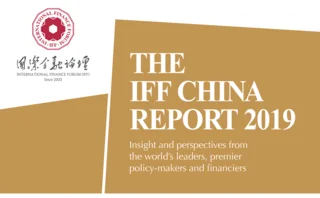
Internationalising renminbi – Hong Kong leads the way


As part of the global financial hub in the Guangdong–Hong Kong–Macao Greater Bay Area, Hong Kong has a key role to play in boosting the internationalisation of the renminbi. Its offshore renminbi market will gain stronger support from its inclusion in the Greater Bay Area.
The earlier format of renminbi internationalisation was made possible because of China’s strong position as the country with the world’s second-largest GDP and as the world’s largest trader of goods. China evolved the function of renminbi payment and settlement in international trade, and many overseas investors began to choose to hold renminbi for two reasons: the renminbi was widely used for settlement in international trade, and it was appreciating in value.

The renminbi’s value soared by 36% between 2005 and 2014, when the trend ended with a depreciation of around 2.5%. However, RMB adoption across financial institutions worldwide rose from 18% to 36% between 2013 and 2016.
Why did the international market still invest in renminbi holdings despite the threat of devaluation? The answer lies in the nature of the renminbi, which has evolved from a trade settlement currency to an international investment and official reserve currency, marked by its inclusion in the special drawing rights (SDR) basket. China’s financial market has been open to foreign investors since 2015 via multiple channels, encouraging foreign investors to hold renminbi assets.
For non-resident investors, holding renminbi represents entry into a new market with a new currency. When rational investors invest in renminbi asset holdings, they are expecting to use risk management tools for duration matching and liquidity transformation, in addition to the management of exchange rate risks.
Following entry into SDR, the next target of renminbi internationalisation is to become an international financial transaction currency or foreign exchange market currency, rather than merely an international trade settlement currency or investment reserve currency, in a bid to form a complete asset trading chain covering trade settlement, reserve investment and risk management.
To attain this goal, a renminbi offshore asset market, exchange trading market and international financial trading market are needed. These are three fundamental features not currently underpinned by trade and foreign direct investment or high-frequency and large-scale trading activities. For this reason, the market should, by its nature, be an international renminbi asset forex market.
Functionally, it primarily helps micro-market entities manage the risks of holding renminbi assets, including currency mismatch risks, liquidity management, credit risks, and so on. With such a sound renminbi currency market, asset market and forex market assisting them to resolve liquidity, risks and asset allocation, investors can adjust their expectations, convert their assets and sell off their funds through this market.
Second, to be able to meet the needs of investors, the macro-market must be populated with active transactions, abundant liquidity and market-based prices, and it must be able to effectively balance. The market-based pricing of the renminbi exchange rate can be achieved through such an offshore market, and with the market mechanism to establish where the so-called reasonable equilibrium level of the renminbi exchange rate should be. With the cross-border or continuous liberalisation of capital projects and financial accounts, freer capital market movement should result, where the exchange rate remains fully market-oriented and flexible, reflecting supply and demand.
Going green
The offshore renminbi market should be green. China is already at the cutting edge in the global green financial market, even emerging as the formulator of green financial standards. Efforts should be made to take advantage of the technological advantages and talent in Hong Kong, and ensure that renminbi assets maintain a green foundation. If enterprise and market entities are encouraged to implement environmental, social and governance (ESG) principles in every Belt and Road Initiative (BRI) investment – respect the environment, be socially responsible and insist on good corporate governance – the international community will show more understanding and acceptance towards the BRI. These investments will, therefore, better help BRI countries achieve sustainable and green development.
Hong Kong is already currently home to the best offshore renminbi infrastructure in the world, which will eventually be able to support the offshore market. Hong Kong’s offshore renminbi market has been very successful with real-time gross settlement and is already outpacing the mainland. Foreign non-resident investors hold renminbi either in deposits or assets. Overseas funds are liquidated on the mainland because they are issued by the People’s Bank of China, and mainland China retains the right of final issuance and holding of all offshore renminbi assets because all must be supported by the mainland’s real economy. On this basis, other overseas financial assets investors can enjoy the benefits of the Chinese market. How can foreign residents hold these assets if all the issuance of renminbi takes place on the mainland? Opening capital accounts and asset accounts are two possible approaches. Nominal holding is made possible in capital accounts while asset accounts are not yet available. Chinese law requires large numbers of foreign non-residents to open real-name accounts in the trustee agency to invest in China’s bonds and stocks, the so-called ‘penetrating management’.
It is, however, very costly and unrealistic to ask overseas non-residents with renminbi investment holdings to open an account in China. Therefore, it is necessary to consider multilevel custody and nominal holding, as in the case of deposit accounts, to facilitate an asset deposit management system for foreign investors with relatively complete property rights overseas, including in Hong Kong.
Based on these asset accounts, various derivatives transactions, liquidity management and risk management can be carried out to form a better transaction structure and risk management system for the overseas renminbi offshore market. In this field, Hong Kong, as part of the Greater Bay Area, is best placed to move to the forefront.
Only users who have a paid subscription or are part of a corporate subscription are able to print or copy content.
To access these options, along with all other subscription benefits, please contact info@centralbanking.com or view our subscription options here: http://subscriptions.centralbanking.com/subscribe
You are currently unable to print this content. Please contact info@centralbanking.com to find out more.
You are currently unable to copy this content. Please contact info@centralbanking.com to find out more.
Copyright Infopro Digital Limited. All rights reserved.
As outlined in our terms and conditions, https://www.infopro-digital.com/terms-and-conditions/subscriptions/ (point 2.4), printing is limited to a single copy.
If you would like to purchase additional rights please email info@centralbanking.com
Copyright Infopro Digital Limited. All rights reserved.
You may share this content using our article tools. As outlined in our terms and conditions, https://www.infopro-digital.com/terms-and-conditions/subscriptions/ (clause 2.4), an Authorised User may only make one copy of the materials for their own personal use. You must also comply with the restrictions in clause 2.5.
If you would like to purchase additional rights please email info@centralbanking.com







